Working in teams
Upcoming events

This course is delivered from 04/03/2026 to 05/03/2026, by face-to-screen consisting of two 3-hour sessions.

This course is delivered from 06/03/2026 to 09/07/2026, by face-to-face/face-to-screen (Hybrid), consisting of seven sessions of varying lengths.

This course is delivered from 10/03/2026 to 11/03/2026, by face-to-screen consisting of two 3-hour sessions.

This course is delivered from 11/03/2026 to 12/03/2026, by face-to-screen consisting of two 3-hour sessions.

This course is delivered from 17/03/2026 to 18/03/2026, by face-to-screen consisting of two 8-hour sessions.

This course is delivered on 18/03/2026, by face-to-face consisting of one 8-hour session.

This course is delivered from 18/03/2026 to 19/03/2026, by face-to-screen consisting of two 3-hour sessions.

This course is delivered on 18/03/2026, by face-to-screen consisting of one 7-hour session.

This course is delivered from 30/03/2026 to 31/03/2026, by face-to-screen consisting of two 3-hour sessions.

This course is delivered from 30/03/2026 to 31/03/2026, by face-to-screen consisting of two 3-hour sessions.

This course is delivered on 08/04/2026, by face-to-face consisting of one 7-hour session.

This course is delivered from 08/04/2026 to 16/04/2026, by face-to-screen consisting of four 3.5-hour sessions.

This course is delivered from 09/04/2026 to 10/04/2026, by face-to-screen consisting of two 3-hour sessions.

This course is delivered on 29/04/2026, by face-to-face consisting of one 7-hour session.

APS Leadership Edge is a cohort-based social learning program which will enable EL 2's to develop their leadership and management skills through a range of learning sprints and activities.

This course is delivered from 05/05/2026 to 29/07/2026, by face-to-face/face-to-screen (Hybrid), consisting of eight sessions of varying lengths.

This course is delivered on 05/05/2026, by face-to-face consisting of one 7-hour session.

This course is delivered from 06/05/2026 to 07/05/2026, by face-to-screen consisting of two 3-hour sessions.

This course is delivered from 11/05/2026 to 12/05/2026, by face-to-screen consisting of two 3-hour sessions.

This course is delivered on 13/05/2026, by face-to-face consisting of one 8-hour session.

This course is delivered on 18/05/2026, by face-to-face consisting of one 8-hour session.

This course is delivered on 21/05/2026, by face-to-face consisting of one 7-hour session.

This course is delivered on 27/05/2026, by face-to-face consisting of one 7-hour session.

This course is delivered from 03/06/2026 to 11/06/2026, by face-to-screen consisting of four 3.5-hour sessions.

This course is delivered on 03/06/2026, by face-to-face consisting of one 7-hour session.

This course is delivered on 03/06/2026, by face-to-screen consisting of one 6.5-hour session.

This course is delivered from 10/06/2026 to 11/06/2026, by face-to-screen consisting of two 3-hour sessions.

This course is delivered on 18/06/2026, by face-to-screen consisting of one 7-hour session.

This course is delivered on 18/06/2026, by face-to-face consisting of one 7-hour session.

This course is delivered from 07/07/2026 to 09/10/2026, by face-to-face/face-to-screen (Hybrid), consisting of eight sessions of varying lengths.

APS Leadership Edge is a cohort-based social learning program which will enable EL 2's to develop their leadership and management skills through a range of learning sprints and activities.

This course is delivered from 04/08/2026 to 06/11/2026, by face-to-face/face-to-screen (Hybrid), consisting of eight sessions of varying lengths.
Courses

During the course we will discuss what diversity and inclusion means in the APS, identify the legislation and policies you need to be aware of and consider how the APS demonstrates its commitment to diversity and inclusion.

APS Leadership Edge is a cohort-based social learning program which will enable EL 2's to develop their leadership and management skills through a range of learning sprints and activities.

APS Leadership Edge Community is a social learning program which will enable EL 2's to develop their leadership and management skills through a range of resources, communities and activities.

Think you always make the right decisions even under pressure? Test your ethical reflexes in the ATO’s interactive game, DAISIE.
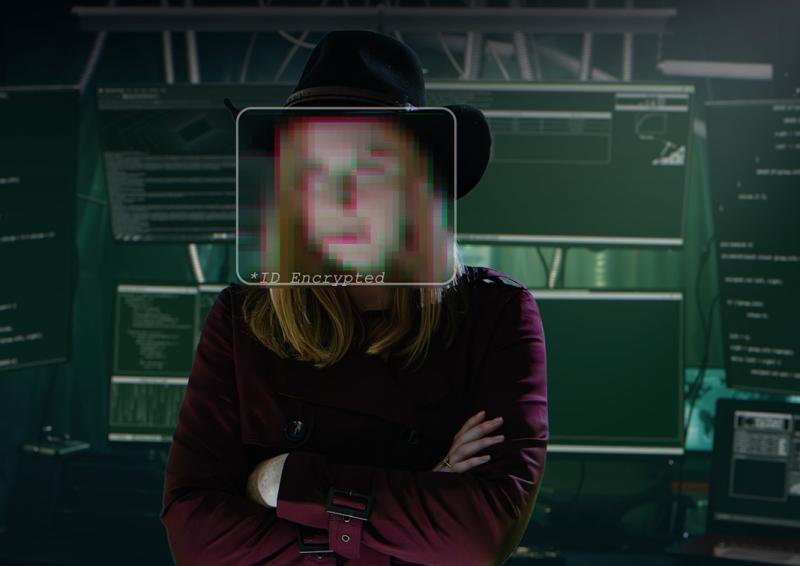
The ATO ‘Villain Academy’ interactive video game, is an exciting ‘choose your own adventure’ style integrity initiative that places you in the shoes of the villain.

Understand how to create and maintain high-performing teams where work is aligned with government priorities. Learn how to analyse and describe high-performing teams, identify the enablers and barriers, and explain the management practices required.

This course is designed to improve the way APS employees coach and manage others so they can deliver improved outcomes, ultimately resulting in higher APS productivity.
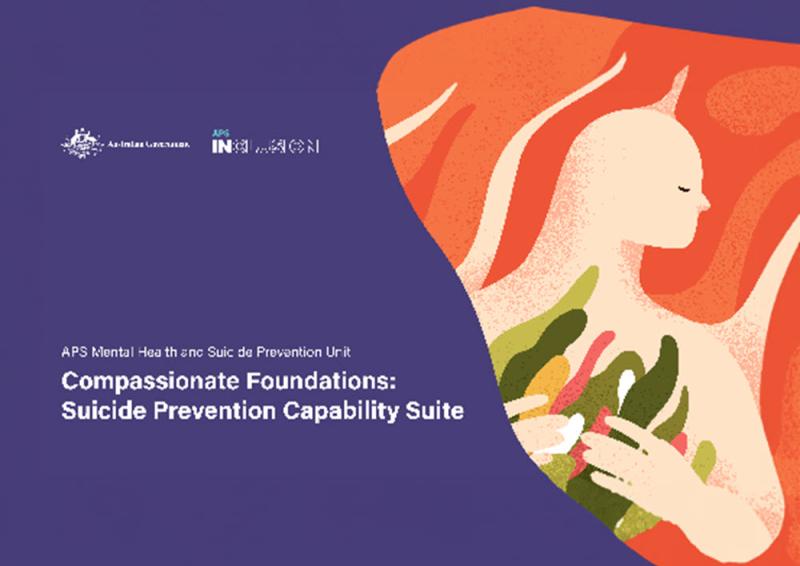
Compassionate Foundations is designed to support you to build your interpersonal and self-care skills to foster positive human-to-human interactions that promote connection and understanding.

This program teaches the skills to respond to workplace and organisational conflict as a manager, including the tools to coach and support others.
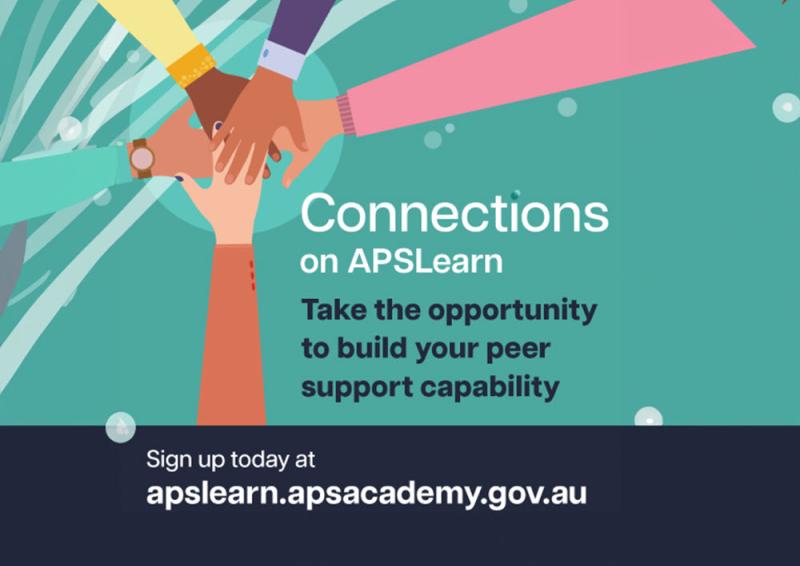
Connections is a key step in your workplace peer support journey, providing you with foundational knowledge and skills for the role.

This course examines aspects of influence and persuasion and the negotiation skills essential for managing and leading at the executive level.

This course outlines the knowledge, tools and techniques required to lead projects and teams at the executive level.
Many Cultures, One APS is a video storytelling project sharing the real-life experiences of APS culturally and linguistically diverse (CALD) staff and is designed to inform, inspire, spark curiosity and encourage empathy.

The Multicultural Organisation – Staff Awareness, Innovation and Capability (MOSAIC) digital learning magazine aims to enhance multicultural awareness in the APS.
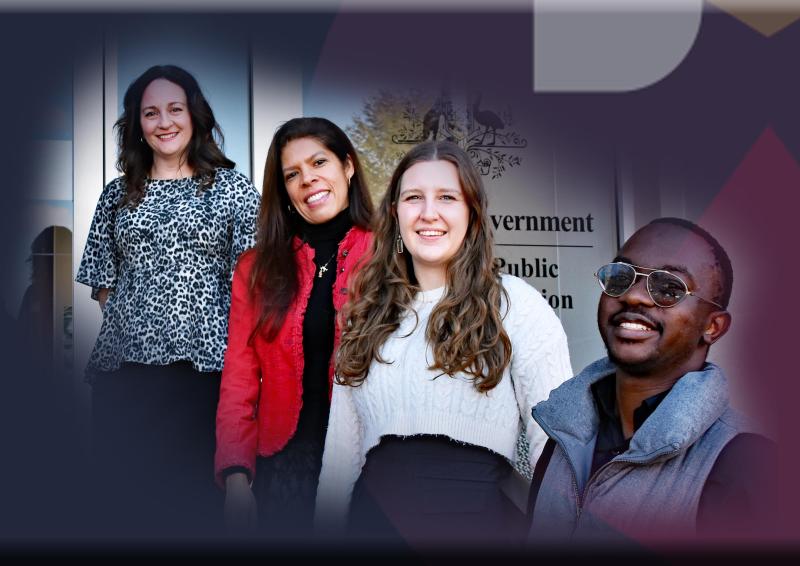
This learning experience supports APS 6 to Senior Executive Service (SES) leaders to champion cultural diversity and inclusion in their teams and organisations.

The program strengthens the leadership capability of experienced senior executives to effectively deliver their key accountabilities.

This course strengthens the leadership capability of senior executives to effectively perform the expected range of high-level responsibilities.
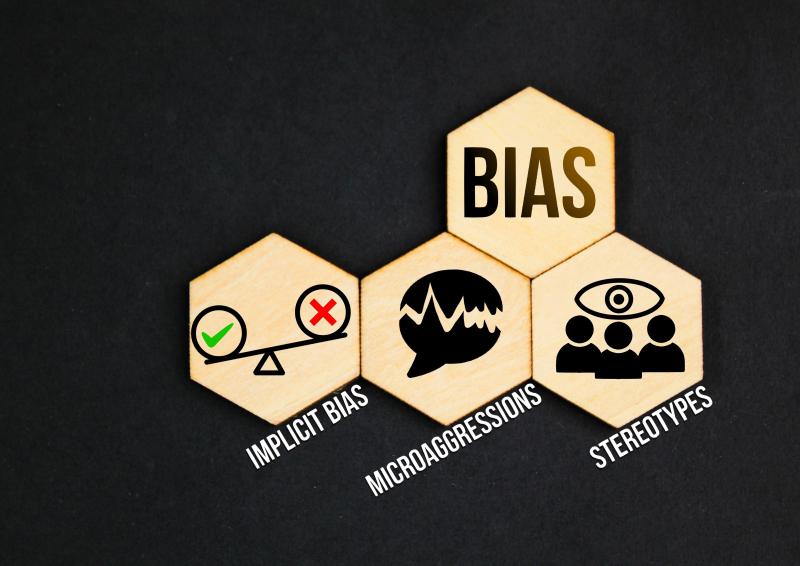
This four-part workshop series, consisting of two themes, offers SES leaders a deep dive into unconscious bias for organisational change. Supported by follow-up workshops, SES leaders can share personal reflections and action plans.

Learn about the business context of the APS as well as develop skills and share high-value work practices required to effectively provide professional executive assistance.

In this module, you’ll learn the essentials for working away from the office, including key guidance for both managers and staff.

Understand the work level standards, capability requirements and behavioural expectations at the APS 5 level detailed in the APS Work Level Standards and the APS Integrated Leadership System.

Understand the capability requirements and behavioural expectations at of APS 6 level. Gain clarity of the APS Work Level Standards and the APS Integrated Leadership System.

Understand the critical role requirements of EL 1's through the APS Work Level Standards and capabilities and behaviours identified in the APS Integrated Leadership System.

Understand the broad role requirements of EL 2s through the APS Work Level Standards and deepen your understanding of the capabilities and behaviours required.

Team development and the value of teams in the workplace are explored in-depth. Examine how specific team roles add to team effectiveness and examine your team role preferences.
Resources
The Budget Papers support the Budget-related decisions of government, providing the fiscal outlook for the Australian economy and highlighting major new initiatives of the government.
This resource features 6 practical strategies to make your learning have a lasting impact on your performance.
Comcare is the national authority for work health and safety, and workers’ compensation. Their purpose is to promote and enable safe and healthy work.
Guides and resources to support individuals and organisations to better understand, prevent and address workplace sexual harassment, including positive duty.
The Australian Public Service Commission (APSC) provides a range of resources to support diversity and inclusion in APS workplaces.
Recorded in June 2025, this panel recording explores integrity in a complex APS, positive leadership, integrity creep and balancing personal with organisational integrity.
The HR Professional Network recognises and leverages best practice across the Australian Public Service (APS). The Network's online community is open to anyone with a GovTEAMS account.
Use this Allyship toolkit to better understand how to support behavioural change and cultural safety and to address racism and unconscious bias.
In today’s fast changing work environment, having a culture where everyone feels empowered to speak up without negative consequences will help build trust and confidence in the APS. This is speak up culture and the essence of psychological safety.
Services Australia’s Program Practice Frameworks can be used as standalone resources, or as suite of connected products to support staff when managing programs and projects, engaging with stakeholders and conducting analysis. The Frameworks feature focus areas which include a set of guidelines, applied tools, resources and links to other relevant and appropriate materials.
When establishing an APS Taskforce, the Australian Public Service Commission's Taskforce Toolkit provides a practical guide through every stage of the taskforce lifecycle, whether you're setting up, mid-operation or winding down your taskforce.
The APS Academy has through Cathy Fussell created a series of, ‘How to…’ articles to provide guidance on what information and avenues are available.
This Worker Information Sheet provides information and guidance to workers in Commonwealth regulated workplaces about workplace bullying and what assistance Comcare can provide in these cases.
Reflection is an important source of self-development and improvement and enhances your continuous learning experiences. It makes the learning that happens at work more productive because you are actively recalling and recognising what you learned.
It’s important to not only decide what skills and knowledge you want to develop, but also how you’re going to learn them. Use this downloadable development planning template to identify the learning experiences you’ll use to develop your skills and knowledge.
The ATO share a suite of simple, practical activities and leadership resources to support the creation of a pro-integrity culture where staff feel safe and empowered to “own it”.
Provides APS agencies with a practical, scalable model to respond to psychosocial hazards in their agency. ADDRESS supports agencies to utilise their existing data and incorporates resources and tools that enable assessment and intervention of risks at both an organisational level and a team or branch level.
Comcare’s evidence-based Good Work Design resources can better support health, wellbeing, work participation and productivity, while creating psychologically safe teams.
In this video, APS staff from around the country answer the question: ‘What does working together in the APS mean to you?’
The guide provides practical guidance for people who run activities that target people with disability to design, plan, and deliver more inclusive processes, products, services and policies.
Inspire and support a continuous learning culture with these Continuous Learning conversation prompts.
A Psychosocial safety learning bite to support staff understand and contribute to psychological safety in the workplace.
A Psychosocial safety learning bite to support Team Leaders foster and contribute to psychological safety in the workplace.
This chart highlights continuous learning experiences that are the most available to APS people. It plots the frequency and distance from work for each experience.
Martin Seligman presents the ‘PERMA’ model which steps through five elements essential to human wellbeing and flourishing: positive emotions, engagement, relationships, meaning and achievement.
The Digital Profession Member Community helps you find opportunities to work across government, collaborate and share crucial digital talent on projects.
The APS Reform Office has created a website with resources and links on how public service agencies are implementing APS Reform initiatives.
This is the website and final report for the independent review panel of the the Australian Public Service (APS) led by David Thodey AO.
Trauma-informed guidance to accompany the release of 'Set the Standard: Report on the Independent Review into Commonwealth Parliamentary Workplaces'. The Resource outlines trauma such as bullying, sexual harassment and sexual assault and its impacts.
Workplace bullying is repeated and unreasonable behaviour directed towards an employee or group of employees, that creates a risk to health and safety. The Headsup website has information and practical guides.
This series covers tools to respond to challenges, stresses, conflict and more at work. This episode explores the basics of Action Learning for digital courses and coaching.
These 'bite sized brain hacks' offer coaching in improving how you learn. This episode includes 3 strategies you can apply to fall in love with learning and build your curiosity.
This podcast episode highlights changes, developments and insights across the Learning and Development profession. Although aimed at L&D practitioners, it also offers insights and ideas for individual learning.
These principles will develop a continuous learning culture to support APS people, managers and leaders to take up their responsibility for learning.
The APS HR Profession has developed a leader attributes overview to support HR professionals in defining and encouraging HR leadership.
The APS HR Profession has developed a capability framework to guide HR professionals to take control of their career pathways.
The APS HR Profession has developed an information package to support HR professionals in a range of day-to-day activities to high level strategic positioning.
Professor Robert Cialdini developed what he describes as ‘six universal principles of persuasion’. These fundamental human states allow leaders to increase the likelihood of influencing others.
The ILS provides capability development guidance for individuals and agencies in the form of descriptions and behaviours for all levels in the Australian Public Service.
Lisa Lahey (2017) explores how leaders can transcend habitual patterns, and considers how to navigate change and complexity.
Caroline Webb (2018) discusses the ‘discover-defend axis’ which is a model showing that the brain has two ‘modes’ which shape the way humans interact.
In her TED talk, ‘The power of believing that you can improve’ (2014), Carol Dweck discusses the ‘growth mindset’ which leaders can use to build their brain’s capacity to learn and solve problems.
Brene Brown informs leaders how they can give constructive and honest feedback from a place of engagement, rather than judgment. She calls it ‘Sitting on the same side of the table,’ as someone.
Gabriele Oettingen presents the ‘WOOP’ model which is a practical, accessible, evidence based mental strategy that people can use to find and fulfil their wishes and change their habits.



